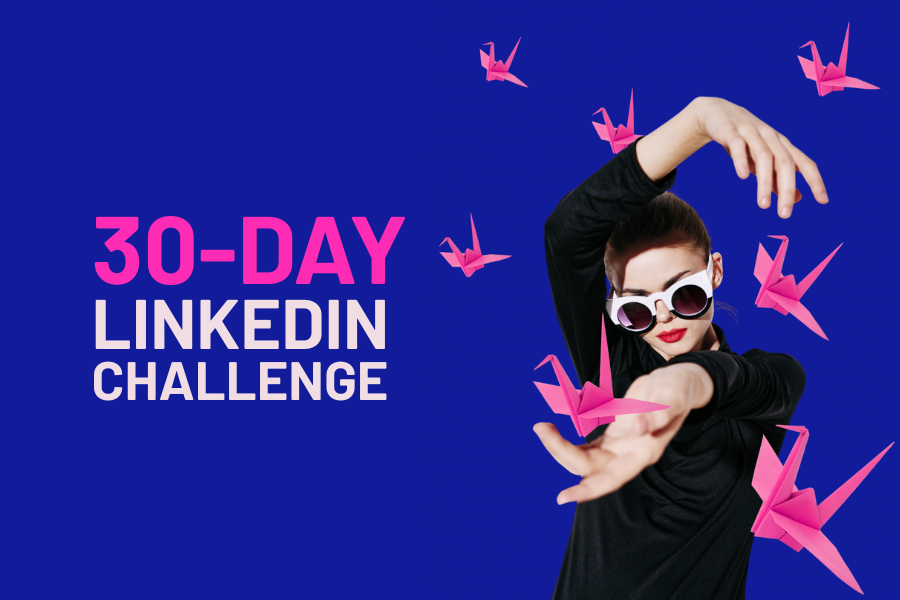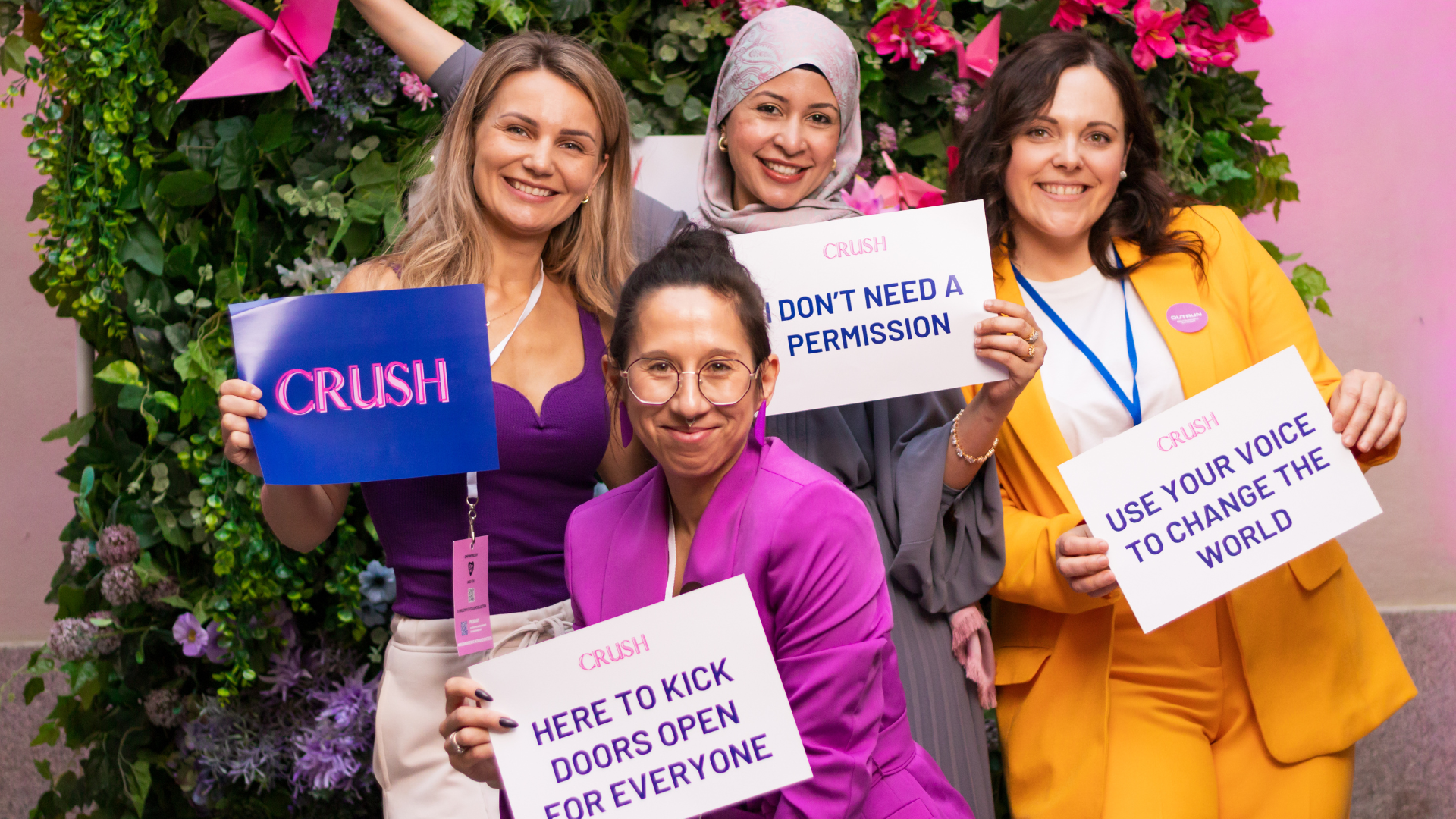

We started as a six-episode talk show on YouTube. Then we launched our annual event. Three years later, and we have taken over 150 people, mainly women and non-binary people to speak at different stages. We are known for our Open Mic, and events that have gathered people from over 40 nationalities.
Crush Movement’s new media site continues the work and amplifies authentic storytelling in business and leadership, culture and society, and in lifestyle topics like wellness resisting algorithmic and corporate bias. It provides a platform for voices which matter to remain visible, shareable, and archived for long-term impact.
With AI summarizing content and social media suppressing posts, controlling our own platform ensures stories are told fully and accurately. Crush Movement provides a platform for creating archives that outlast big tech’s changing policies, or social media’s short content cycles.
We hosted our first Crush Future Lab in early October 2025 to gather ideas and thoughts what’s the most important for our community.
Two topics emerged from multiple different angles: we want VISIBILITY and COLLABORATION.
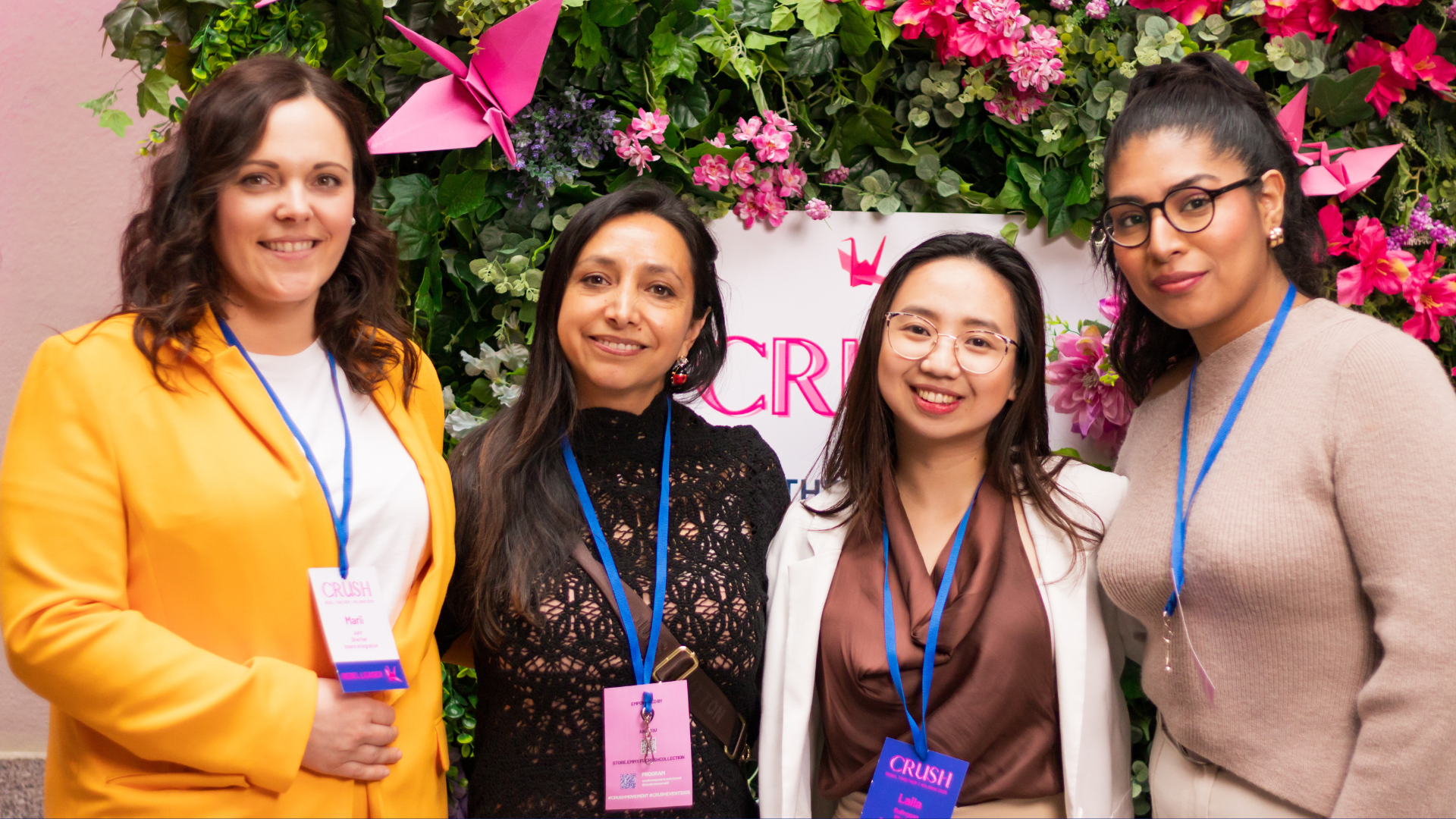
Simply said, we just want our voices heard and find the right people to work with.
In every generation, women have had to fight to be heard. Platforms may change, from press to books, from television to TikTok, but the pattern remains: when women speak, systems find new ways to quiet us.
Women changed the way we communicate online. Men might have built the platforms like Facebook and Twitter, but without women organizing, using the social media to build communities, and without women’s creative output, even social media tools wouldn’t have made it to mainstream media. At least not as fast.
I was in “the rooms” (aka marketing and new media conferences) speaking about how social media will revolutionize how we communicate (and market products or rally for causes) in 2007-2010. I remember being laughed at for social media being just for “women who don’t have anything else to do but chat online all day.”
I started my first online business in 2004, and the internet promised equality of access and the democratization of voices and business opportunities. And for a while, it worked.
Women helped each other, raised awareness, and changed things. Women built global movements like #MeToo. We broke the silence, connected across borders, changed laws, and got more financial freedom and opportunities.
But as platforms were bought by the highest bidders, and algorithms took over editorial decisions, the promise of digital equality started faltering. The more powerful the platforms became, the more resistance against women’s voices was formed.

Today, women’s stories are quietly filtered, downranked, and sometimes erased by code, and we live in echo chambers and convenient bubbles of people confirming whatever biased opinions we have.
We should be going forward with equality and closing gender gaps, but we started going backwards.
We can not back now. Literal lives are at stake. No, we are not being burned at the stake, but we might as well be, like the examples show when it comes to silencing discussion for example about women’s health.
We need to amplify our voices, and that’s why we need platforms like Crush Movement and our own independent media.
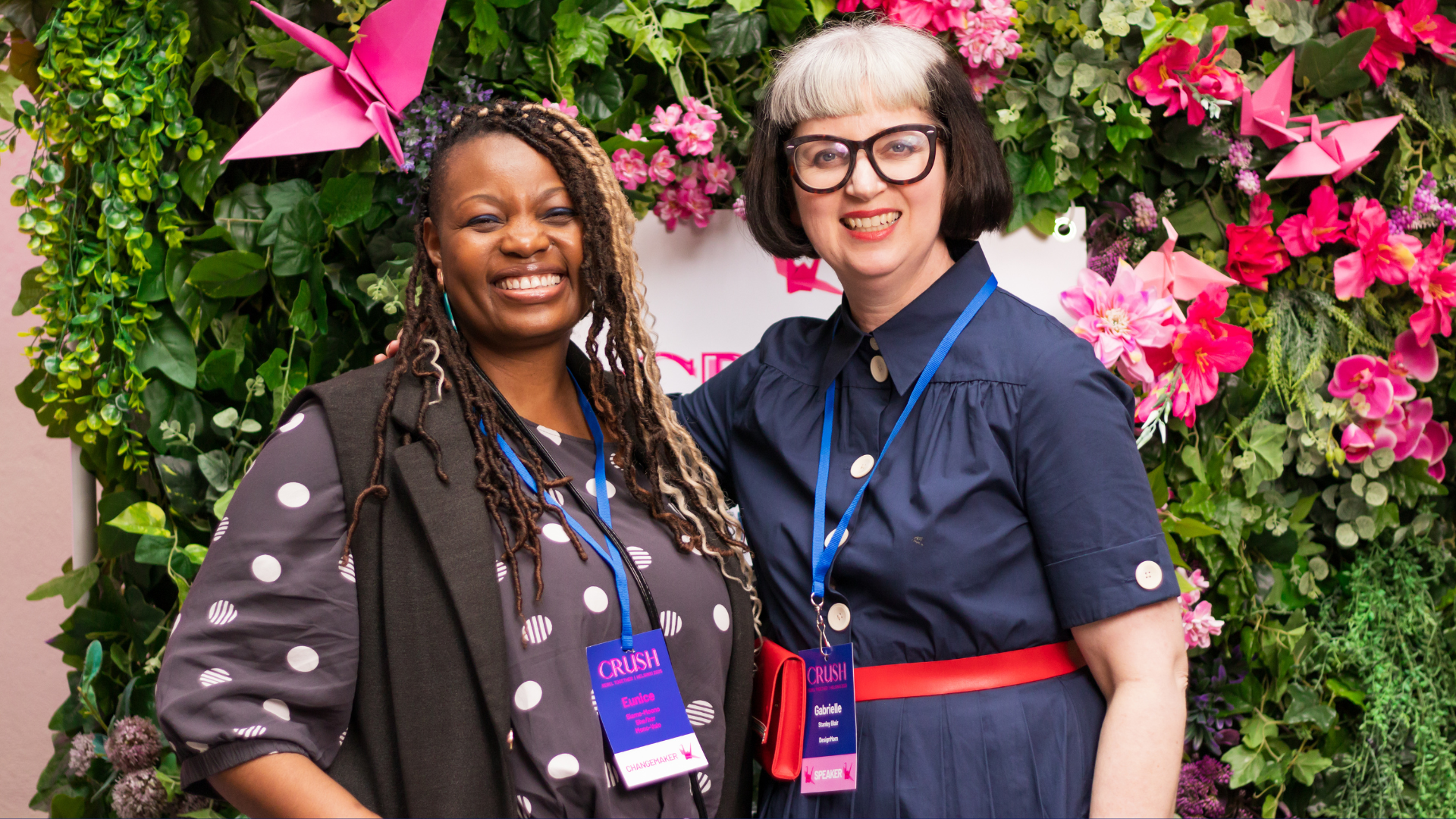
Health is only one of the many topics, but the most alarming one.
Across platforms, women’s health and rights content is disproportionately suppressed. The non-profit CensHERship found that 9 out of 10 creators posting about women’s health had experienced censorship in the past year. Posts about endometriosis, breastfeeding, and menopause have been flagged as “adult content.” Accurate information about abortion, even when entirely factual and legal, has been deleted on Instagram, Facebook, and TikTok.
The Electronic Frontier Foundation’s Stop Censoring Abortion campaign documented nearly a hundred incidents of lawful reproductive rights content being removed or hidden. Meanwhile, femtech companies advertising reproductive and sexual health products have seen accounts suspended simply for using anatomical words like “vagina” or “menstrual.”
Even influential voices face suppression. Campaigns like MyBodyMyChoice have seen posts removed for discussing reproductive rights, and Cindy Gallop has reported repeated algorithmic suppression of content related to sexual health and equality, and even about funding for women-owned companies.
Algorithms also determine visibility. A Harvard study found women were less likely than men to see STEM-related ads, even with identical interests. Research from UCL shows TikTok systematically amplifies misogynistic content while suppressing female voices in leadership and business content.
What starts as “content moderation” can quickly become cultural erasure.

AI is the newest misogynist gatekeeper.
Algorithmic censorship refers to automated moderation systems that determine what content is visible or hidden, often without human oversight. In practice, this often silences women’s health, reproductive rights, LGBTQ+ topics, and feminist discourse.
AI models are trained on curated datasets that remove “sensitive” material. Human raters reward neutral or “safe” responses and penalize political or controversial answers. The result is a sanitized worldview, which quietly excludes women’s perspectives.
AI-powered tools like chatbots and Google’s AI Overviews are now the primary way many people access answers online. According to The Wall Street Journal, these tools have drastically reduced traffic to news websites. For example, The New York Times saw organic search traffic drop from 44% to 36% over a few years.
But AI doesn’t just summarize; it decides. AI also refuses, deflects, or downgrades entire classes of women’s rights content. For example, when asked about feminism, Apple’s Siri was instructed to never say the word, instead deflecting or avoiding it - and this was already over six years ago.
Image algorithms flag clinical women’s health content as ‘adult’ or ‘racy,’ severely reducing visibility. Similarly, AI models often refuse prompts about transgender women in sports or questions about reproductive health, or answer them in incomplete, evasive ways. These are systemic limitations, and algorithmic censorship.
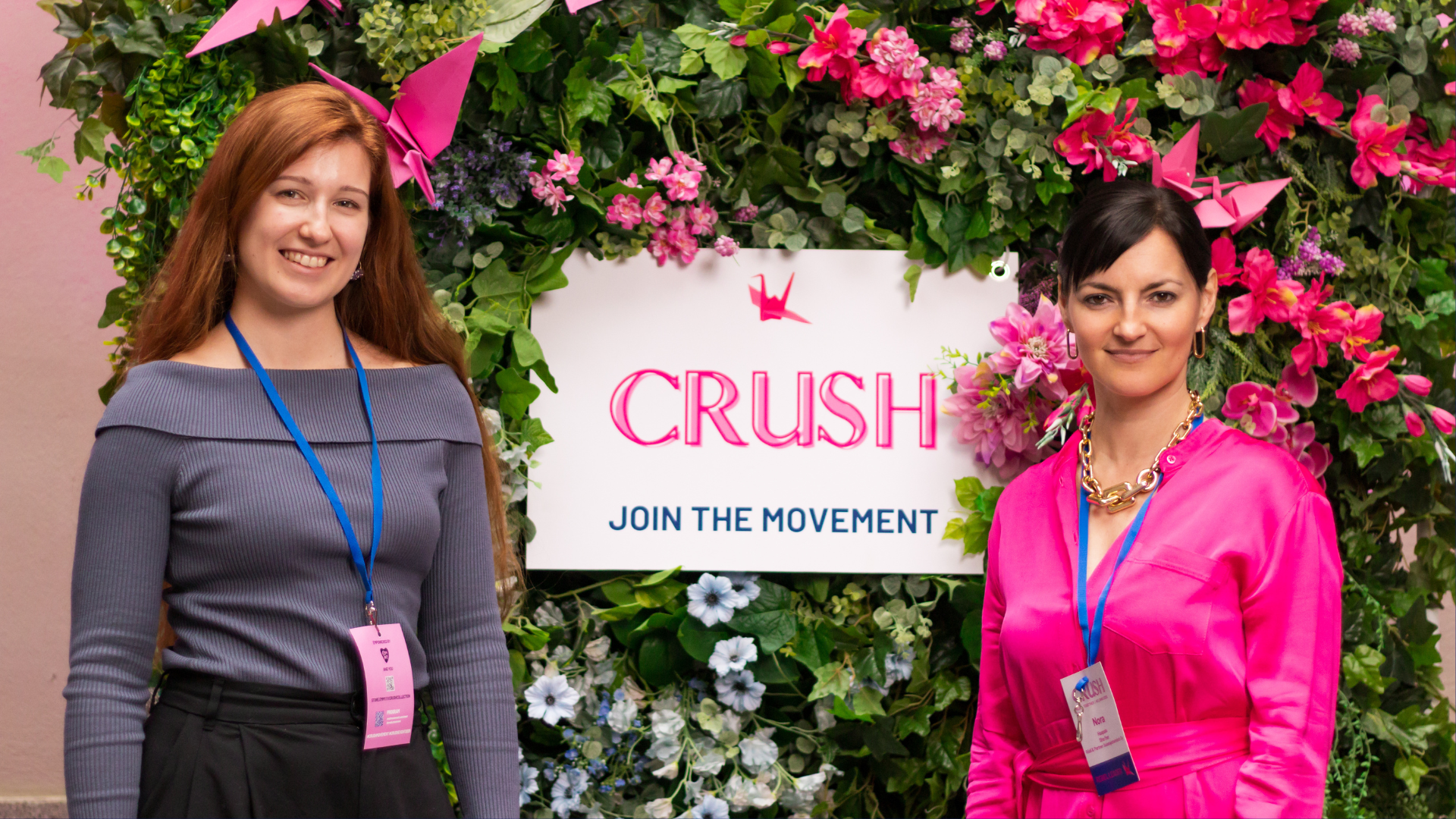
If we do not create our own media, the stories of women, especially in leadership, business, society, culture, and wellbeing risk disappearing from public consciousness.
Crush Movement is building a platform where women’s ideas are amplified, not filtered. We focus on long-form stories, interviews, and essays that go beyond social media soundbites, preserving narratives that algorithms might otherwise suppress.
By creating our own media, we ensure women’s voices remain visible, searchable, and shareable, even as algorithms and AI models evolve.
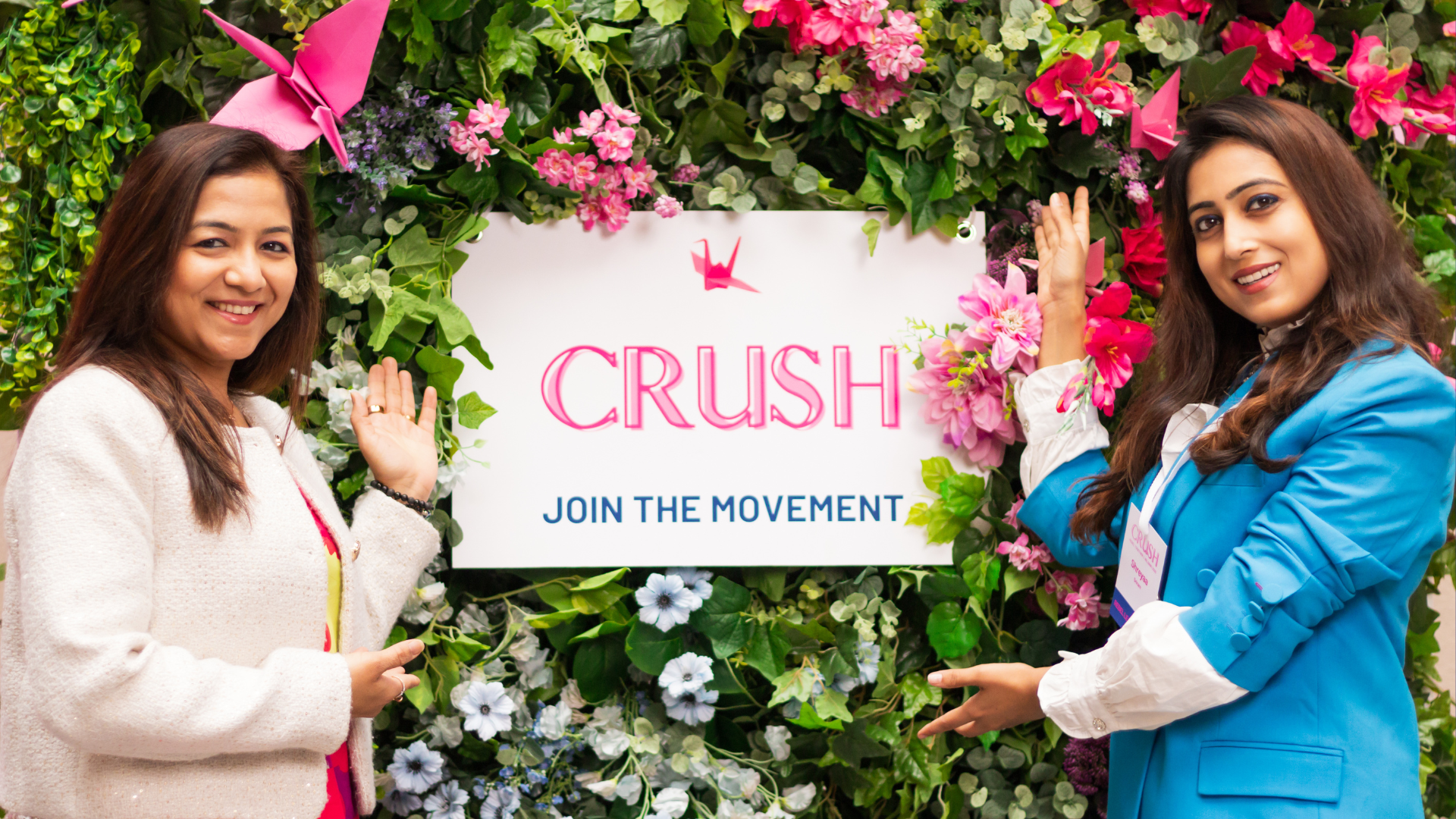
Posts about reproductive rights, menstrual health, menopause, gender-based violence, feminist activism, and women in business and leadership are disproportionately targeted. Even professional advice or business leadership content from women often receives less visibility than similar content by men.
Diversifying platforms is key. Hosting content on independent sites or newsletters ensures it is not subject to algorithmic suppression. Using precise language, linking to reputable sources, and joining communities like the Crush Movement helps amplify content collectively.
We are building Crush Movement a platform where our community members can become the trusted voices, and we amplify those who already are experts in their fields. It’s still editorially curated, but that’s the point.
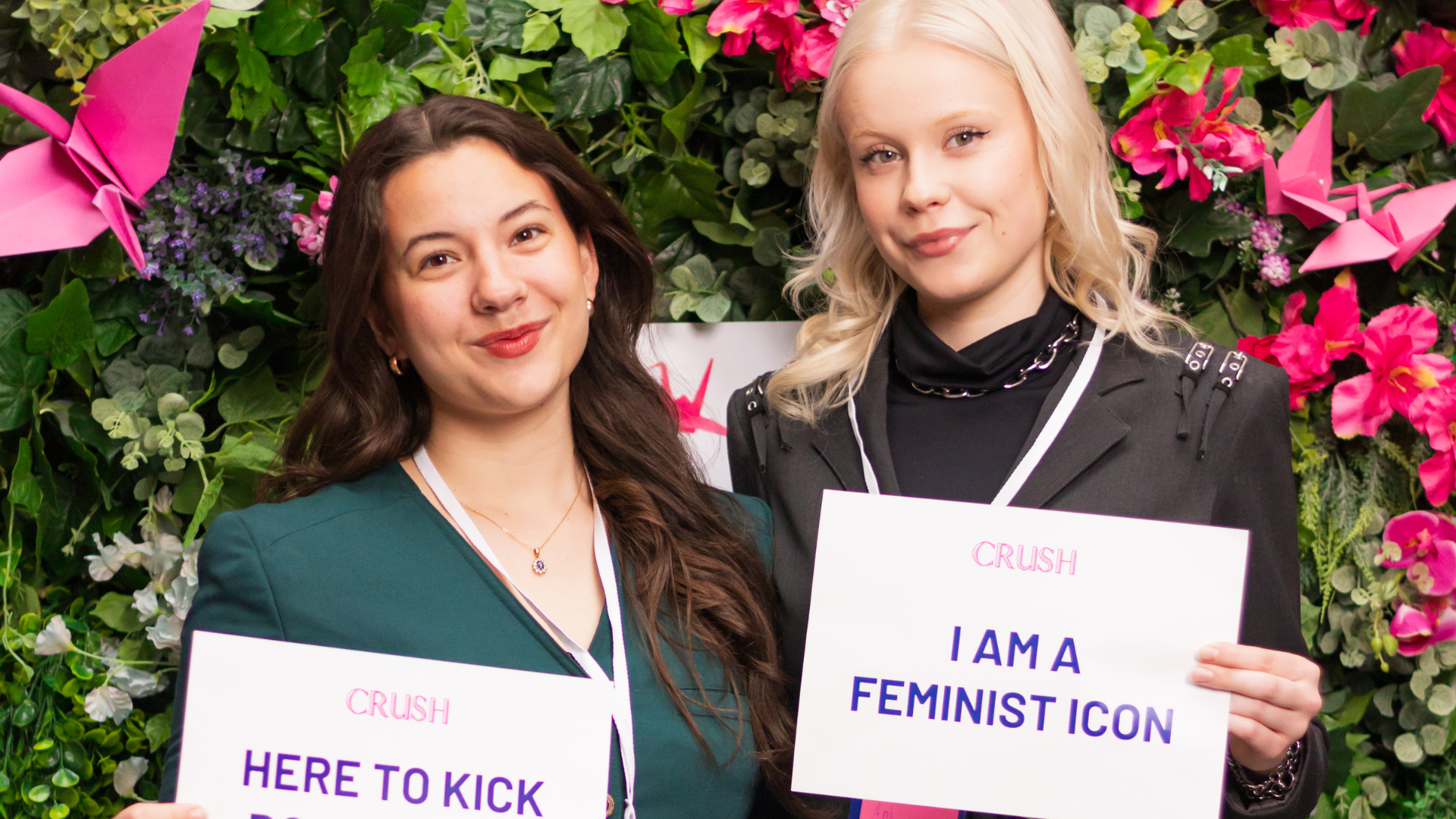
Yes and yes.
In China, AI chatbots and platforms avoid politically sensitive content and feminist activism, and removed and banned accounts that once championed women’s rights on Weibo. In other regions, like Iran and Russia, women journalists and activists face direct suppression and legal persecution.
In Western countries, censorship is more algorithmic than explicit, often hidden in moderation policies or search algorithms. Topics like women’s health, reproductive rights, sexual education, and gender equality are frequently flagged or deprioritized by social media platforms. Posts about menstruation, breastfeeding, or reproductive autonomy have been shadowbanned under vague “community guidelines.”
That’s one reason why Crush Movement being based in Finland matters.
Finland consistently ranks among the top two countries in the world for closing the gender gap (World Economic Forum 2025) and first in global press freedom (Reporters Without Borders 2024).
Our legacy of equality and freedom of speech are in our editorial DNA. We operate from a country that values truth, education, and independent media. Finland’s small size and global mindset make it an ideal home for our movement that combines transparency with equality.
Our Nordic communication culture is rooted in honesty, calm confidence, and respect, and it challenges the noisy, performative norms of the digital world.
From this vantage point, we hope to tell stories that might be censored elsewhere, and publish globally from a country that protects women’s voices instead of silencing them.
Crush Movement’s editorial mission reflects this: to create a space where women can write, read, publish, listen, watch and amplify each other’s perspectives freely on business and leadership, culture and society, and lifestyle. Here, your voice matters.
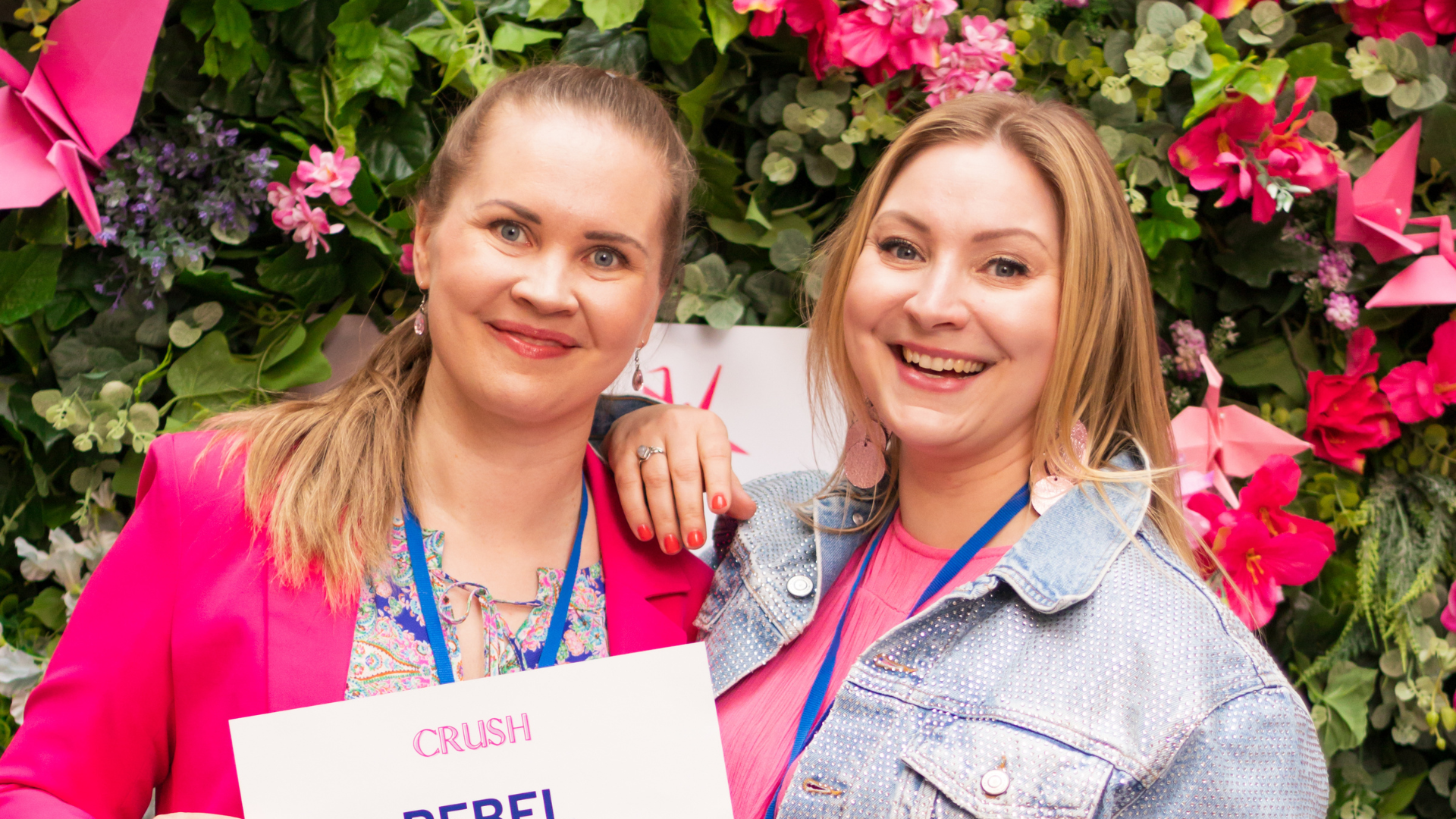
AI may be the next evolution of communication, but it will not end the human narrative.
Women’s voices have always shaped revolutions, cultures, and movements, even when they had to whisper.
Owning our media is about freedom to publish, to be heard, and to define our own stories before machines, markets, or governments decide for us.
Our goal is not to be the loudest voice. Our goal is not to be needed because your voice will no longer be silenced.

Crush Movement Rebel Leaders can apply to become content creators. Join now.
Photos: Taken at our annual conference by Tara Alleah Martin.
Founder of Crush Movement. An award-winning marketing strategist and digital pioneer who built her career as a global nomad, helping Fortune 100 brands and entrepreneurs grow and break sales records. A bestselling author and keynote speaker, her work has been featured in Forbes, The New York Times, and MTV3.
A 30-day challenge designed for authentic thought leaders who want to become unignorable on LinkedIn.Build trust, master storytelling, and attract the right audience without relying on AI or clickbait hacks.Includes 28 emails with over 100 customizable post ideas, helping you show up confidently, optimize your profile, and grow your credibility, engagement, and sales.
